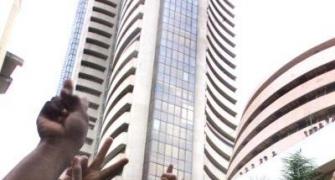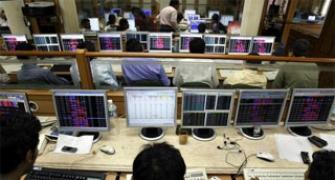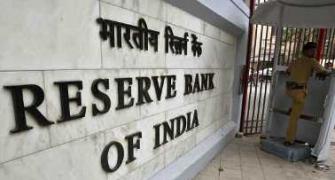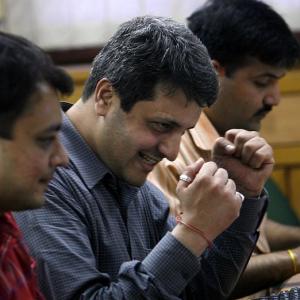
Analysts expect global markets to remain in consolidation mode with a negative bias over the next six months.
October is again proving to be bad for equities, with markets across the globe seeing the second-steepest fall since 2008 (in percentage terms) this month.
The first two weeks of the month have seen major US indices slip 5.3-7.3 per cent, while major European indices have lost 8-15 per cent.
Investors largely consider October a bad month for equities, as it has been witness to historic market crashes - Black Monday, Black Tuesday and Black Thursday.
The great crash of 1987, which saw the Dow lose 22.6 per cent on a single day, occurred on October 19. In 2008, the month saw global markets tumble, as investors began reacting to adverse news from credit markets.
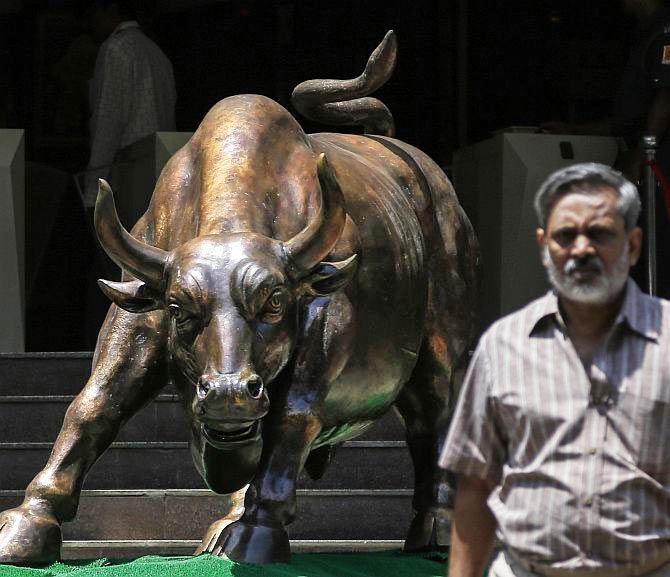
Though Indian markets have corrected so far this month, the fall has been less compared to most global peers.
“Indian markets are correcting, after a sharp run-up since the past few months. We feel they will consolidate for some time, as the fundamentals catch up. The economy is recovering and, at the same time, there are some global factors that have come into play,” said Vaibhav Sanghavi, director (equities), Ambit Investment Advisors.
What’s spooking markets?
The current weakness in global markets has primarily resulted from weak economic data in major economies such as Europe and China, coupled with expectations of a sooner-than-expected rate rise by the US Federal Reserve, after it winds down its bond-purchase programme (quantitative easing, or QE).
Investors are interpreting the fall in oil prices as a sign of a possible slowdown in the global economy. They are booking profits, following a sharp rally so far this year, analysts say.

“Europe is grappling with low inflation, virtual recession and no growth. The US economy, on the other hand, is faring better, but monetary tightening is just round the corner. The markets are getting adjusted to a potentially higher interest rate regime. If economic data are supportive, there are chances the US Fed might start monetary tightening as early as the first quarter of 2015. I think that’s what is spooking the US markets these days,” said U R Bhat, managing director, Dalton Capital Advisors.
According to Bank of America-Merrill Lynch’s Fund Manager Survey for October, concern about an imminent end to the US Fed’s QE programme has hit investor confidence, in terms of the outlook for the global economy and corporate profitability.
After a fall of more than 20 percentage points from September, only a net 32 per cent of respondents expected the global economy to strengthen through the next 12 months, the lowest reading in two years.

Outlook
In this backdrop, analysts expect global markets to take cues from economic data coming from the US, China and Europe.
Indian markets will also react to domestic cues such as progress on reforms and corporate results, besides key economic data and are likely to remain range-bound, they say.
“Markets’ outlook will depend on the economic data from the US, China, Japan and Europe. Since there is a lot of uncertainty surrounding this and the fact that the US Fed can raise rates, markets will remain volatile, with a negative bias,” suggests Sanghavi of Ambit.
Analysts, however, suggest there is a possibility in case economic data are bad, liquidity from central banks will help economic revival and stem the market fall.

Once the US ends QE, there is a distinct possibility Europe will start a fresh bout of QE. This is likely to keep investor interest alive in a growth economy such as India. However, all this needs to be supported by governmental action in terms of reforms, they say.
“Markets can move up 5-10 per cent from here, but if FIIs (foreign institutional investors) are disappointed with the pace of reforms, there could be sell-off, too. One needs to be circumspect about that. US and European markets will remain in consolidation mode, with a negative bias,” Bhat adds.


